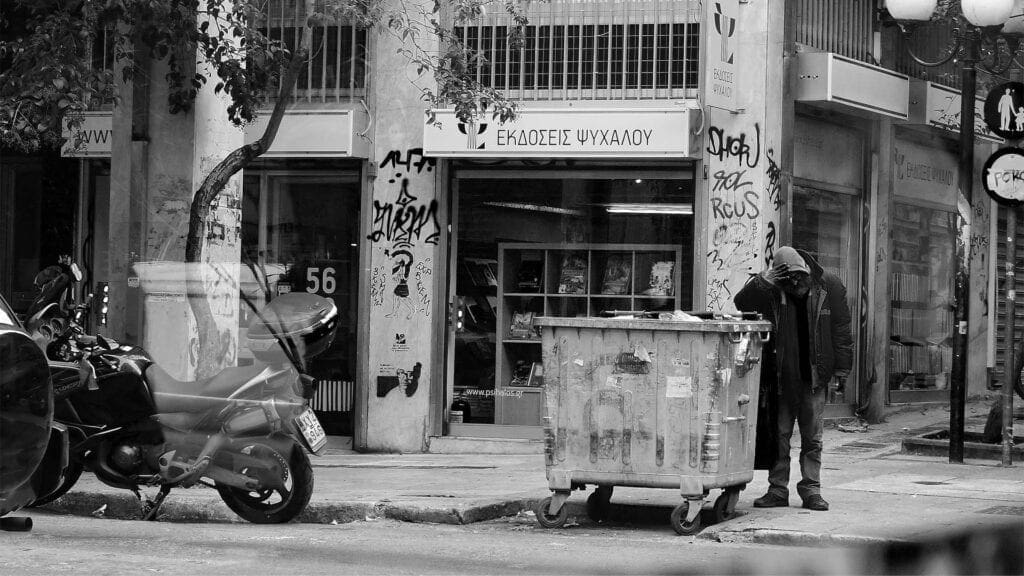As a concrete gesture from the Holy Year of Mercy (2016-2017), Pope Francis established that the World Day of the Poor be celebrated on every penultimate Sunday in Ordinary Time. For this year, the Bishop of Rome has sent us a message to inspire the III Day with the theme “The hope of the poor will not perish forever” (Psalm 9:19).
This psalm is a cry for justice. It reveals the condition of the poor in the face of the arrogance of those who oppress them. It expresses faith in God, from whom comes the justice that overcomes sin, the cause of all evil. The Psalm was written at a time of great economic development in Israel, which caused a small group of privileged people to grow, thus generating a context of inequality, because, at the same time, a large number of people fell into poverty (cf. no.1 of the Pope’s message).
Today, we witness a similar picture. The emergence of new faces of the poor (such as migrants), the growing population living in the streets, the underemployed, those who are subjected to slave labor, exploited children, people trafficked for various purposes, the growth of the fortune of some to the detriment of the impoverishment of many. All that highlights the triumph of injustice and inequality.
This situation is sustained by the promotion of the ideology that the poor are to blame and even deserve their situation, “they are seen as a threat or simply useless.” In addition, the culture of indifference also grows, which makes them invisible and hides their voices. “Men and women … are increasingly strangers amid our houses and outcasts in our neighborhoods” (no. 2).
The World Day of the Poor brings in itself a prophetic force and demonstrates great harmony with the Vincentian Charism. It invites the Church to perceive the existence of the poor and challenges her to stand beside them. God was never indifferent to the cry of the oppressed (cf. Exodus 3:7). He always assumed the part of the poor and acted in their favor, listening, intervening, protecting, defending, rescuing, saving.
The World Day of the Poor, if well celebrated, will also raise trust in the Lord in the heart of the impoverished. The poor, in the Bible, are those who trust in God and “it is precisely this confidence in the Lord, this certainty of not being forsaken, that inculcates hope.” With a heart trusting in God and full of hope, the poor can find the strength necessary not to be reduced to objects of our charity, affirming themselves, the other way around, as subjects of their own promotion (cf. no. 3).
The presence of the Church with the poorest, encouraged by this celebration, does not consist in an invitation to welfare attitudes that ease our consciences. It is rather an invitation to conversion, to a change of mentality and attitudes, to denunciation of the root causes of poverty, and to commitment to a change of structures in order to foster integral evangelization and real promotion of the poorest.
The poor do not need bread alone. They want to be heard, touched, recognized, and valued. Therefore, our presence must be constant and marked by love, the sincerity of our hearts, and the total surrender of our lives in favor of their cause, which is the cause of Jesus’ life: an abundant life for all (cf. John 10:10). Let us, therefore, offer our impoverished brothers and sisters our hands to lift them up, our hearts to make them feel again the warmth of affection, and our presence to overcome loneliness (cf. nos. 6-8).
May the celebration of this World Day of the Poor encourage and strengthen us, especially those of us who embrace the Vincentian Charism. May we remain faithful to the mission of evangelizing the poor, “our lords and masters,” and may we ourselves be the good news of salvation for them, “with the strength of our arms and the sweat of our brows.”
Hugo Silva Barcelos, CM
Province of Rio de Janeiro


